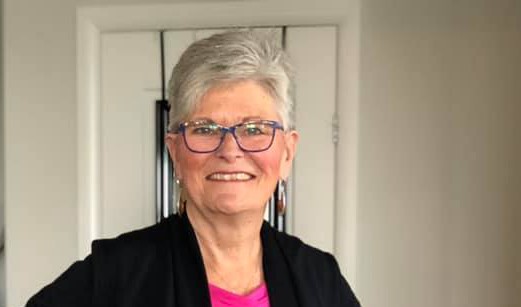
I have noticed that these times we live in have given me more reasons to be angry and judgmental of others. Much of this stems from choices people make whether that has to do with not wearing masks, not getting vaccines or not being respectful of social distancing. While I am not particularly fearful, I simply see these behaviours as disrespectful. Its one thing to put your own health at risk but another to create health risks for others.
Of course, anger and judgment is not a place I want to live in and as a result I have been exploring the theme of forgiveness. Somehow this seems even more important, especially as we begin to emerge from the restrictions of the pandemic and define what life is going to look like as we move forward.
Having said that, forgiveness is a confusing thing. When I was young I believed that to withhold forgiveness from another person was to keep them ‘on the hook’ for some dastardly deed they had committed and which they needed to be accountable for. The thing is, I was the one that held onto that energy while the other person sailed through life with little or no awareness of the deed that I felt so offended by. Now that just seems crazy, doesn’t it? The same applies today.
Can you relate?
Then I found this little book on forgiveness by Dr. Jerry Jampolsky. This book contained a seed of wisdom that has fed me through the years. The author simply suggested that forgiving someone does not mean that you agree with what they did or condone their behavior. To forgive someone is to release you from the burden of carrying this judgment, allowing you to heal.
That said, why is forgiveness so important. Psychological research suggests that forgiveness promotes healing, whether that is physical, emotional of spiritual. Lynn Woodward states the following, “True forgiveness is not something we do for another person. I often hear people speak forgiveness as something we give to someone else, something that must be deserved or earned, and sometimes needs to be withheld. The spiritual purpose of forgiveness is self-healing”.
I have given great thought to forgiveness through the years and have spent countless hours understanding how to forgive certain people in my life. A few years ago, as I struggled in what I saw as another layer of forgiveness with my father, I sought advice from one of my coaches, Alan. In listening to me and offering me some feedback, Alan suggested that maybe the struggle was over, that the work was done and that maybe the person I most needed to forgive was ME.
Now that hit the mark. I allowed it to sink in and as I did I began to realize once again that the high standards I was holding myself to were impossible to attain and how when I achieved less than what I had imagined, I could not forgive myself. Yet again another way to criticize myself. To make matters worse, I was setting impossible standards for myself in terms of forgiving others. This is crazy making.
Since Alan’s wise words to me and Jerry’s advice regarding what forgiveness is and is not, I have moved forward with new understanding. You can as well. Begin by forgiving yourself. When you start with you, when you cultivate self-compassion, you will not only feel better about yourself, you will also find yourself able to forgive others with greater ease.
Where do you begin? When self-judgment rears its head, ask yourself a couple of questions:
1) Do I know this judgment to be true?
2) What evidence is there to support this judgment?
3) Is this simply my critic voicing his/her opinion?
4) How does this judgment serve me?
5) How can I release this judgment and clear the path to forgiveness?
I recognize these questions may not lead to an actual solution, they simply highlight the importance of not accepting everything your critic has to say. Do not make yourself wrong. Learn from events and understand how this will change your actions in the future. Know that you will act differently and do better. Forgive, move on.
In terms of forgiving others, one of the exercises Jerry Jampolsky recommended in his book was to make a list of all those people whom you have not forgiven. I remember distinctly filling out this list. I was on a train from Toronto to Montreal, thinking this won’t take long until I dove in. The list was an entire page, two columns. This shocked even me and I had to reflect on what holding on to all these perceived wrongs was doing to me. The infractions I carried were everything from superficial scratches to gaping wounds; regardless they needed to be healed. Embracing his advice, that forgiveness did not imply agreement, one by one I visited each name, considered the action, appraised it for what it was, and released it. Can I say it – OMG, I felt so much lighter.
Then there were all the sins I felt I had committed to which I exercised the same principles. I disagreed with many actions, I recognized that these were mistakes from which I learned. I embraced the lesson and moved on. Lighter still.
As part of any healing journey, whether this is recovery from an actual illness or a simple desire for improved emotional and spiritual health, give yourself the opportunity to explore forgiveness. As Carolyn Myss writes,“Self-love means caring for ourselves enough to forgive people in our past so that the wounds can no longer damage us – for our wounds do not hurt the people who hurt us, they hurt only us”.
Forgiveness clears the space emotionally and spiritually creating more opportunity for more love, love for others and self-love. And love is the great healer.
Until next time, Betty Healey, MEd., CAPP
Your thoughts and strategies are always welcome and if you care to share you can reach me at: [email protected]












